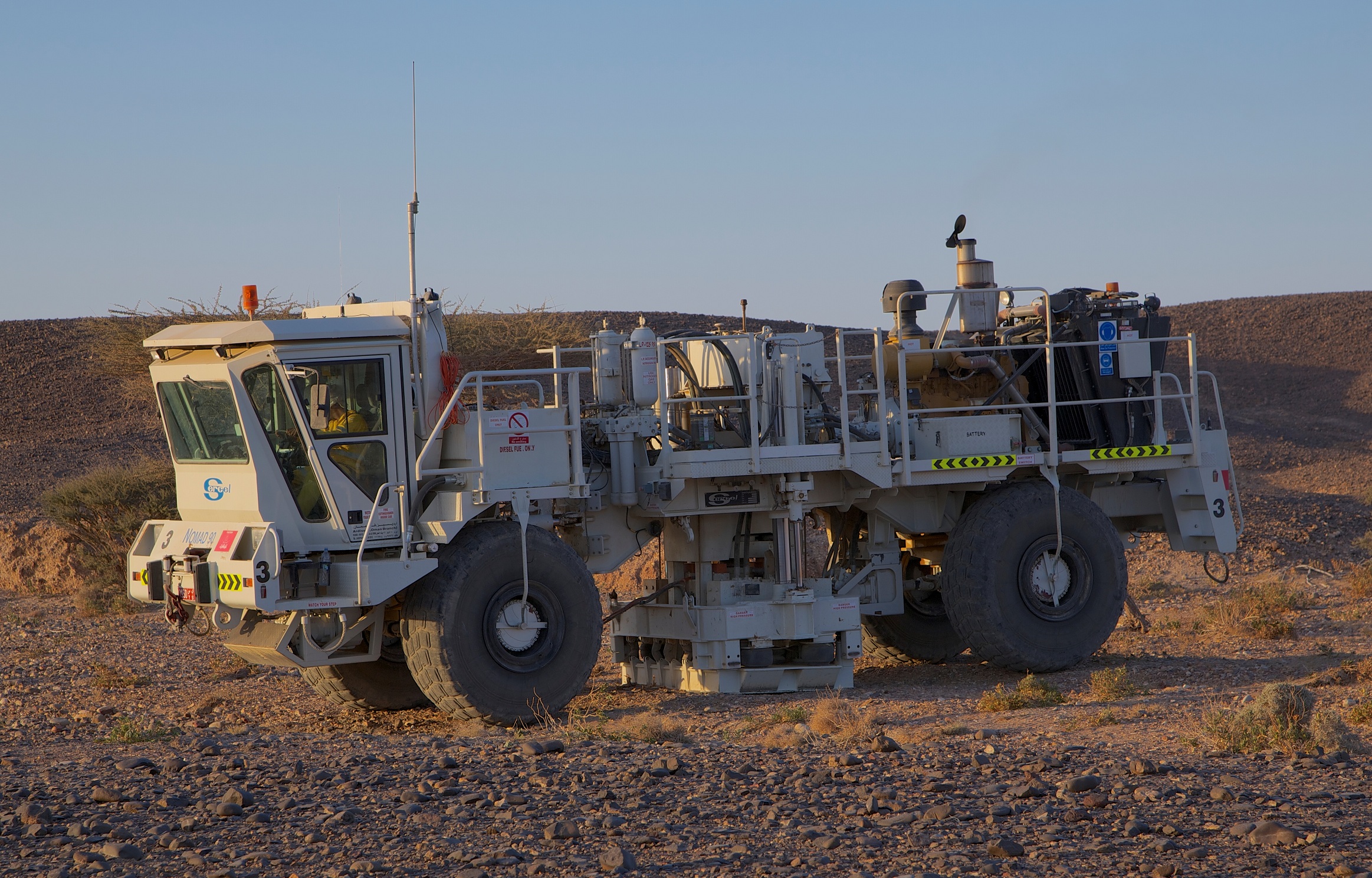Seismic exploration is the process of using seismic energy to probe below the surface of the earth to search for oil and gas. The agreements that grant a company access to land in order to shoot seismic is called a seismic survey agreement. While seismic exploration was the primary method for finding oil and gas deposits in the past, it is still used in unconventional resource plays to identify and avoid faults and fractures which can cause issues during drilling or completions.
Be sure to also subscribe on Apple Podcasts via the link above and please leave us an honest rating and review. We read every one of them and sincerely appreciate any feedback you have. To ask us a question to be featured on an upcoming episode, please leave a comment below or send an email to feedback@mineralrightspodcast.com.
What is Seismic Exploration?
It is the process of using seismic energy to probe below the surface of the earth to search for deposits of oil and gas. They do this with sound waves and sophisticated sensors spaced out on the surface of the earth (or drug behind a vessel when this is done in the ocean). These sensors, also called geophones, measure the reflection of these seismic waves and from that, scientists called geophysicists can deduce what is below the ground. With the advancement in computing power, most seismic surveys now are what is called 3D or 4D seismic which allows them to visualize in 3 dimensions and in the case of 4D seismic, over a period of time to visualize changes to the formation or reservoir they are modelling (usually in the case of a producing field they may go in a few years later to see how the oil-water contact has changed or if they are doing a water flood, to see how the injected water has propagated through the formation.
Is Seismic Exploration Still Used Today?
Seismic exploration agreements are still relevant in today’s unconventional oil and gas plays. One of the primary benefits of surface seismic is the ability to locate and avoid drilling into zones with faults and fractures which can adversely affect the ability to drill or complete the well successfully.
Another use is to figure out why some shale wells perform better than others, all things being equal. Sometimes performance differences can be caused by changes in the formation and seismic data can help geoscientists figure this out.
Who is Impacted by Seismic Projects?
Seismic exploration directly affects the surface owner whose land the survey team needs to access in order to shoot seismic. It also indirectly affects mineral owners who have rights to the subsurface in the event the company discovers what they believe to be an oil or gas reservoir. This is because it might trigger leasing of mineral rights in the area they think is prospective for oil and gas exploration and if a successful well is drilled then of course it would mean you would get paid royalties.
We’re going to focus on the surface owner in today’s discussion since we’ve already covered how to negotiate an oil and gas lease in Episode 6.
Are Seismic Exploration Agreements All That is Needed?
There are several documents that can be used or that may be required in order for a company to proceed with a seismic shoot. They include:
- Permit from government agency
- Seismic exploration agreement
- Oil and gas lease
- Combination of the above
In any case, if you are approached with a seismic exploration agreement then it is important to make sure the company will comply with all local, state, and federal regulations and that they’ll obtain all necessary permits to cover this work, in addition to the agreement they sign with you.
They may be required to notify the county commissioners prior to the seismic shoot and may be required to send legal notices to the affected property owners. You might be asked to attend a county commissioners meeting to provide feedback on the proposed seismic shoot. The company may also be required to notify affected mineral owners for the lands covered by the proposed survey.
What do you need to know if you are approached to sign a seismic exploration agreement?
- Some companies may present a seismic and lease option agreement which gives them the option to lease your mineral rights if they determine it might be prospective for oil and gas development. The terms of the option to lease are probably not going to be favorable to you and might allow them to lease your minerals for a below market rate as compared to what you would be able to negotiate separately, especially if other companies who are active in the area find out that the company that shot seismic data is now looking to lease your mineral rights.
- The agreement will cover things similar to what an oil and gas lease or a surface use agreement would cover. To find out more about how to negotiate a surface use agreement, listen to Episode 23.
- Term of the agreement, in other words the length of the agreement and when they can enter your land to perform work and how long it will take.
- The land that is covered by the agreement – this would include the legal description of the tracts that are covered by the agreement
- How much they will compensate you for gaining access to your property.
- Areas where they will be allowed access and areas that might be off-limits. How they will be allowed to access your property (you might specify a specific entry point or road that they can use and roads that would be off-limits for example).
- How they will compensate you for any part of your property that is disturbed or damaged during the seismic shoot. For example, they make have to take down sections of fence to drive in the seismic trucks and to lay out the geophones. The agreement should cover how they will restore the disturbed sections of fence back to a certain condition. IT should also include monetary compensation to account for anything not specifically outlined in the agreement.
- What happens if any crops or livestock are hurt during the project? How will you be compensated?
Is signing this type of combination agreement a good option for a landowner who owns both the surface and the mineral rights?
- Depends on your situation and the terms of the lease. The option to lease will probably not include the best lease offer since it is being made absent of the knowledge on what the potential oil and gas reserves might be. Again, you would usually be better off agreeing to the terms of seismic exploration and surface damages and then signing a separate oil and gas lease because if the company decides they want to lease your minerals at least you can go and get competing offers and potentially have the benefits of statutory pooling, especially in states like Oklahoma that require companies to offer the most favorable terms to mineral owners when they are force pooled.
What impacts can a surface landowner expect if they agree to a seismic shoot on their land?
When the company performs the seismic survey, they will lay out sensors on the surface like we mentioned and then use either explosive charges or vibroseis (think of a large truck with a large heavy plate that is in contact with the ground that vibrates at a certain frequency). In either case, they measure what these generated sound waves do below the ground.
They will perform the survey and then clean up (hopefully) in accordance with the agreement and any permits.
Resources Mentioned in This Episode
- MRP 6: How to Negotiate an Oil and Gas Lease
- MRP 23: How to Negotiate a Surface Use Agreement
- All that you ever wanted to know about the science behind seismic exploration
- Introduction to 3D Seismic
- Seismographic Survey Agreement Example
Thanks for Listening!
To share your thoughts:
- Leave a comment or question below (we read each one and your question may be featured in a future episode)!
- Ask a question or leave us feedback via email or voicemail: (720) 580-2088.
To help out the show:
Click the Apple Podcasts Logo Above to leave us a rating & review. It really helps us reach those that need to hear this information and only takes a minute. We greatly appreciate it! Plus, you can get a shout out on a future episode!
Thanks again – until next time!




